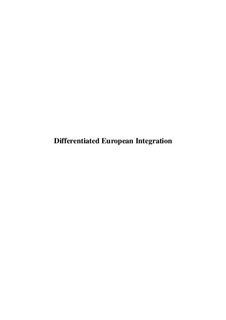| dc.contributor.author | Leiren, Merethe Dotterud | |
| dc.date.accessioned | 2013-12-03T11:56:55Z | |
| dc.date.available | 2013-12-03T11:56:55Z | |
| dc.date.issued | 2013 | |
| dc.identifier.isbn | 978-82-7117-752-2 | |
| dc.identifier.uri | http://hdl.handle.net/11250/139754 | |
| dc.description | Avhandling for graden philosophiae doctor Universitetet i Agder, Fakultet for økonomi og samfunnsvitenskap | no_NO |
| dc.description.abstract | Why is liberalisation reform introduced in some areas but not in others? In an introduction and four independent yet interconnected articles, this doctoral thesis aims at making a contribution to answering the above mentioned question. Through detailed case studies and process-tracing, the thesis outlines four key contributions: it uses institutional perspectives to understand why a common policy becomes different in character across sectors; it identifies conditions under which liberalisation reform occurs at both the EU and local level; it contributes to clarifying the scope regarding the assumption that a constitutional bias towards negative integration explains the introduction of liberalisation policy in the EU; finally, it adds insight as to how trade unions, which are generally considered to be weak in EU liberalisation politics, may be influential at the EU level. There is more focus on sectors rather than the state, thus allowing for focus on policy level variables and not for example on the institutional features of different national political systems. The public service sector has been selected for analysis since differentiated integration remains under-researched in this area. A focus on infrastructures ensures that the selected cases - the Postal Directive, the Public Transport Regulation and the Port Directive - share certain similarities. As several public services are sub-national responsibilities, this thesis also contributes to understanding the appeal of competitive tendering at the local level. The thesis consists of four chapters (i.e. independent articles) and an introduction that shows how these articles form an integrated set of output. The four independent articles are: (1) An in-depth analysis of the Postal Directive that fully opened the postal services to competition. This chapter complements theories of institutional change by adding insight as to how layering brings about policy change of liberalisation in the EU. (2) A case-study of the failed Port Directive. This chapter contributes to the literature of European integration by outlining the forces that create barriers for further integration and tests the widely held assumption that trade unions have limited impact on the EU level decision-making process. (3) A comparative analysis of the two above mentioned cases (from points one and two), alongside a third case, the Public Transport Regulation. This chapter questions the scope of the widely cited assumption that a bias in the treaties explains the introduction of negative integration in the EU and asks what the limits of EU liberalisation are. (4) A case study of the organisation of public transport in the Norwegian County of Sør-Trøndelag. This chapter contributes to our understanding of why liberalisation occurs at sub-national level, even when policies endorsed at higher levels remain flexible (i.e. EU policies and the transposition of such legislation at the national level). | no_NO |
| dc.language.iso | eng | no_NO |
| dc.publisher | Universitetet i Agder / University of Agder | no_NO |
| dc.relation.ispartofseries | Doktoravhandlinger ved Universitet i Agder;73 | |
| dc.title | Differentiated European integration : liberalisation of post, public transport and ports | no_NO |
| dc.type | Peer reviewed | no_NO |
| dc.type | Doctoral thesis | |
| dc.subject.nsi | VDP::Social science: 200::Political science and organizational theory: 240 | no_NO |
| dc.source.pagenumber | XII, 166 p. | no_NO |
